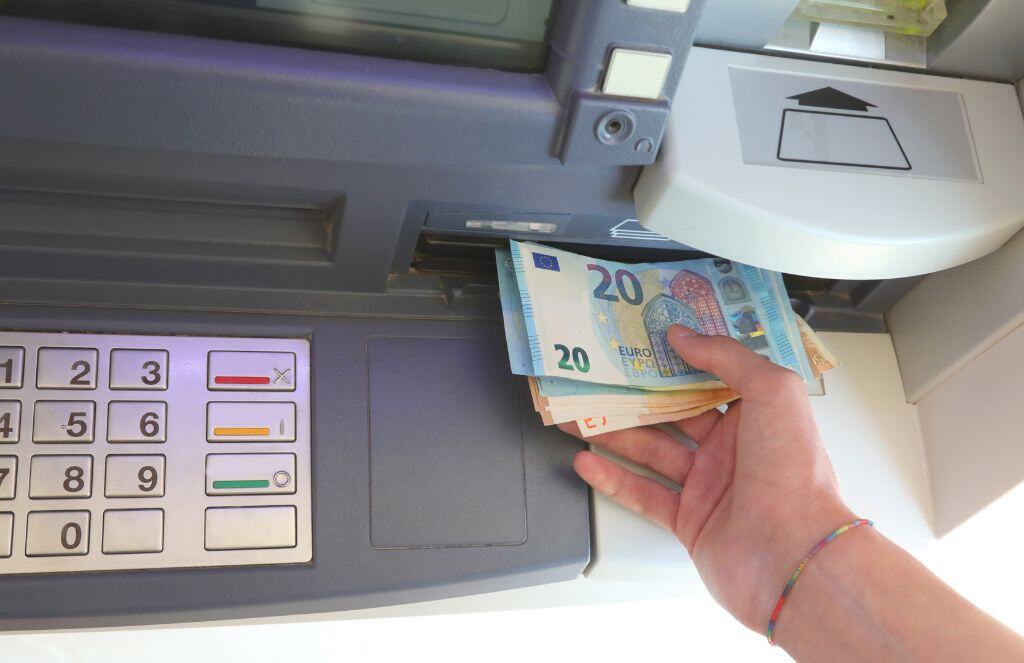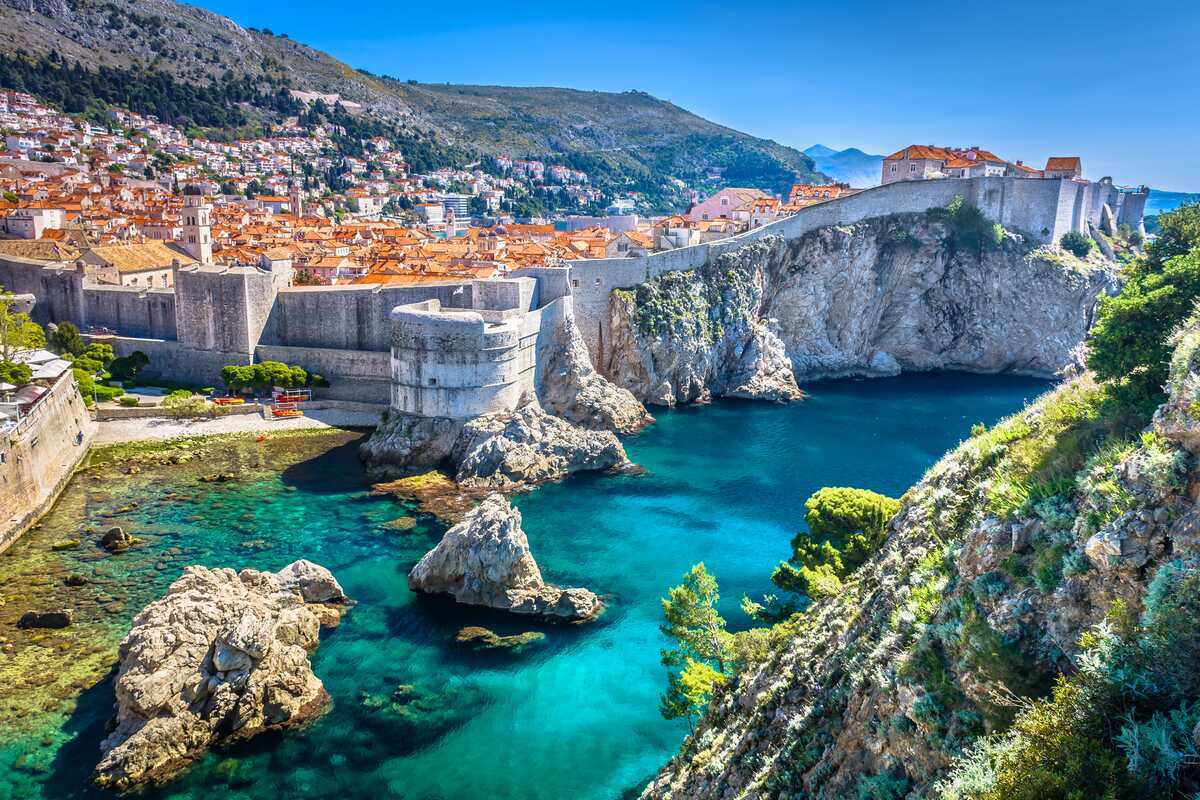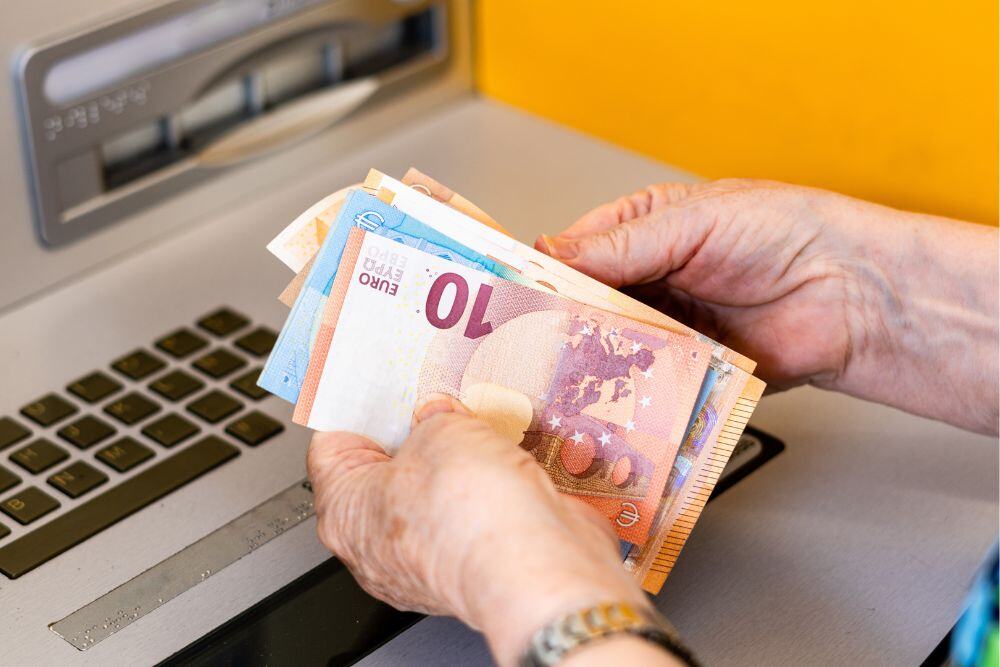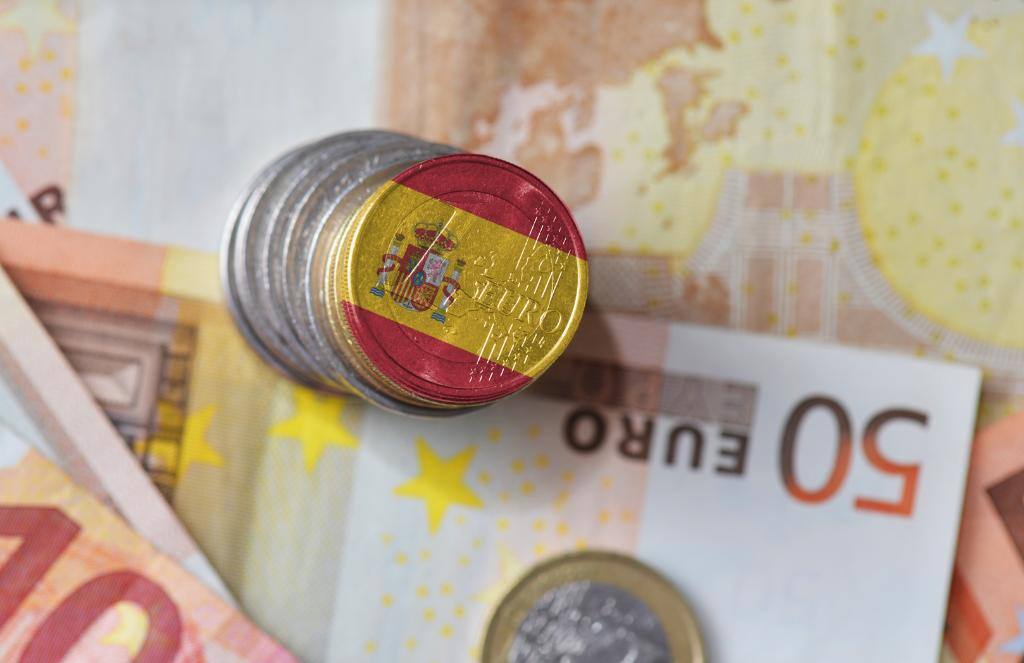💰Scratch to WIN a share of $50,000! Every customer wins. Ends Jan 31st. Learn More
How Much Spending Money for Spain?
Dreaming of sipping sangria in the sun-soaked plazas of Spain or dancing the night away to the rhythm of flamenco? Spain's charm is as irresistible as a plate of paella! But the real question is, how much does a trip to Spain cost?
No worries - Crown Currency Exchange is here to guide you through budgeting your Spanish escapade. After all, we're not just about getting you the best exchange rates - we're about making your travel dreams come true.
Let's break it down for you.
How Much Spending Money Do I Need for Spain?
Spain is known for its affordability, especially when compared to other Western European destinations. But, like any travel budget, it will depend on your travel style.
Budget Travellers
If you're a savvy saver who doesn't mind skipping the luxury digs, you can expect to spend around €70-€100 a day. This includes hostel accommodation, public transportation, cheap eats and free activities (yes, they exist!).
Mid-range Travellers
If you prefer a bit more comfort but still want to keep an eye on your dollars, plan for around €160-€240 per day. This will get you a decent hotel room, meals at mid-range restaurants, inter-city travel, and entrance fees to some must-see sights.
Luxury Travellers
For those who love the finer things in life, Spain can still be a relatively affordable luxury destination. You'll want to budget €360 or more per day for top-tier hotels, dining at high-end restaurants, taxis around town, and VIP experiences.
What Goes into a Travel Budget?
When planning your travel budget for Spain, there are several key factors to consider:
- Accommodation: Whether you're a luxury lover or a budget backpacker, accommodation is a key part of your budget. From plush hotels to cosy hostels, the choice is yours!
- Food: You've got to fuel those adventures! Consider your dining preferences - will you be sampling street food, cooking your own meals or dining at gourmet restaurants?
- Transport: Getting around is essential. Are you planning to use public transport, rent a car, or maybe even splurge on a few taxi rides?
- Activities: This is where the fun comes in! Think about the attractions you want to visit and the experiences you want to have. Remember, some adventures are priceless!
Still wondering how to make the most of your budget in Spain? Let's dive deeper into each of these factors.
What is the Cost of Accommodation in Spain?
From budget hostels to luxury resorts, the cost of accommodation can vary greatly. On average, here's what you can expect to pay per night depending on your travel preferences:
- Budget Traveller: Budget hostel dorms' average price ranges from €10-€15 per night, while private rooms in hostels or budget hotels can go for €40-€80.
- Mid-range Traveller: Budget hotels and apartments will cost around €80-€150 per night.
- Luxury Traveller: Luxury hotels and resorts will cost around €300 or more per night.
Different accommodation options
- Hostels: Starting at around €10 per night in off-peak seasons, they can reach up to €35 in cities like Barcelona or Madrid during summer. Private rooms? Expect to shell out between €50-€70 per night. Most hostels throw in Wi-Fi and breakfast for free.
- Budget hotels: Twin or double rooms start at around €60. Prices dip a bit outside major cities and tourist hotspots, but peak season might see a hike.
- Airbnb: In most major cities, you can snag a private room starting at €35 per night. For an entire home or apartment, you're looking at around €80 per night, although it can go higher in big cities or during the peak season.
- Campsites: If you're hauling a tent along, campsites across Spain charge between €15-€25 per night. Basic tent plots without electricity can be as cheap as €7, while pricier sites (up to €45 per site) might offer luxuries like a pool, electricity, and Wi-Fi.
Our money-saving tips for accommodation costs:
- Explore Smaller Towns and Cities: Consider staying in smaller towns or cities. They are often cheaper and just as charming as their bigger counterparts.
- Plan Ahead for Savings: Book your accommodations well in advance to save money.
- Inclusive Breakfast Accommodations: Look for accommodations that include free breakfast – it's one less meal you have to worry about.
What is the Cost of Food in Spain?
Spain is a food lover's paradise, and the cost of food can range from various tasty snacks to high-end gourmet meals. Here's a rough breakdown of what you can expect:
- Tapas and Sandwiches: Small bites, big on flavour! You can score these for around €6-€12.
- Fast Food: A quick combo meal from places like McDonald's will set you back about €9.
- Chinese Food & Pizza: Expect to pay around €12 for a main Chinese dish or a pizza.
- Drinks: A beer costs between €3-€5, while a latte or cappuccino is around €2.50. Bottled water is usually less than €1.
- Casual Restaurant Meal: For a solid meal with a drink at a casual restaurant, budget around €25. If you fancy paella, drinks, or appetizers, plan to spend around €35 for a meal.
- Fine Dining: If you're looking to splurge, meals at high-end establishments start at around €45 with a drink.
- Groceries: If you're cooking your own meals, weekly groceries cost between €40-€60. This gets you basics like pasta, rice, seasonal produce, and some meat or seafood. The freshest produce and meat are often found at local markets.
Our money-saving tips for food costs:
- Spot the Menu of the Day: Look for menu del dia (menu of the day) at local restaurants - they're often a great deal.
- Market Fresh Savings: Hit the local markets for the freshest and cheapest produce, meat, and seafood. Cooking your own meals can save you a bundle!
- Don't Eat in Crowded Tourist Areas: Head to local neighbourhoods or choose budget restaurants for the best value and authentic cuisine.
What is the Cost of Transport in Spain?
Getting around Spain comes with its own set of costs. Here are some estimated prices
- Public Transportation: Cities like Madrid and Barcelona have extensive metro systems and even smaller cities like Valencia or Bilbao have handy light rails. Single rides usually cost between €1.50-€2.50. If you're a frequent commuter, consider a day pass for around €10-€18.
- Buses: For city hopping on a budget, buses are your best bet. FlixBus tickets start as low as €6, and amenities include outlets and free Wi-Fi. A 9-hour trip from Madrid to Barcelona starts from about €35, while the 4-hour trip between Seville and Granada costs around €25.
- Trains: Spain's national rail line, RENFE, offers both high-speed and regular trains. The high-speed option is pricier but can get you from Madrid to Barcelona in just 2.5 hours. Tickets from Madrid to Barcelona can be as low as €70 on the high-speed train.
- Flying: Budget airlines like Ryanair are a good option if you're short on time. Just remember, extras like checked baggage or seat selection will cost you more.
- Car Rental: You can rent a car for as little as €30 per day when booked in advance. Just remember, you'll need an International Driving Permit and must be at least 21 years old.
- Ridesharing: For budget travellers, ridesharing with locals can be an interesting way to travel. BlaBlaCar is the biggest company offering this service.
Our money-saving tips for transportation costs:
- Embrace Public Transit: Consider using public transportation. It's usually the cheapest and most efficient way to get around in Spanish cities.
- Inter-city Bus Travel: If you're planning to travel between cities, look into bus options. They're often cheaper than trains or flights.
- Smart Car Rental: If you're considering renting a car, compare prices online in advance to get the best deal.
What is the Cost of Activities in Spain?
Let's talk fun stuff, shall we? Here's a rundown of what you could spend your Euros on while exploring Spain:
- Sagrada Familia: Barcelona's iconic basilica is a must-visit. Entry fee starts around €26 to €40, but remember, it's not just a ticket - it's a donation to appreciate the masterpiece!
- Flamenco Show: When in Spain, do as the Spaniards do – dance! Catch a flamenco show for around €10-€35, depending on which part of Spain you are in. It’s like buying a ticket directly to the heart and soul of Spanish culture.
- Alhambra: This iconic palace in Granada is a hot ticket. Admission starts at €7.42, but for the full experience (including the Nasrid Palaces), prices are closer to €27.30.
- Tapas Tour: Foodies, this one's for you. Join a tapas tour for as little as €40.90. But it can be as expensive as €475+. It's a bit pricier, but hey, that’s dinner and entertainment sorted!
- Prado Museum: Madrid's world-renowned art museum costs around €15 for general admission.
- Park Guell: Another Gaudi masterpiece in Barcelona, entry to the Monumental Zone will set you back about €10.
- Madrid City Tour: Hop-on, hop-off bus tours are a great way to see the city. Prices range from €25-€47, depending on how long your tour wants to be.
- Wine Tasting: Spain is known for its wine. Join a wine-tasting tour for about €320 per person for 2 people to €190 per person for 8 or more people. Remember, you're not splurging, you're investing in grape knowledge.
- Running of the Bulls: Witnessing this adrenaline-pumping event in Pamplona is free, but participating can cost you...well, let's just say more than money.
- Hot Air Balloon Ride: Hover over the gorgeous Spanish countryside for about €172 all the way to €1,766 per person. It's not cheap, but neither is feeling on top of the world!
Our money-saving tips for activity costs:
- The Early Bird Gets the Worm: Many popular attractions, like the Prado Museum or Sagrada Familia, offer discounted prices for early morning or late afternoon visits. Plus, you'll avoid the crowds. It's a win-win!
- Freebies are Your Friend: Look out for free entry days or hours at museums and galleries. For instance, the Prado Museum offers free entry from 6 pm to 8 pm on weekdays.
- Pack a Picnic: Instead of dining at touristy (and often overpriced) restaurants near major attractions, why not pack a picnic? Spain’s weather is usually picnic-perfect, and their parks aren't too shabby either.
Other Expenses to Consider for the Trip
Don't forget some additional expenses you might want to factor into your Spain adventure budget. Here are a few to keep in mind:
- Travel Insurance: It's not the most exciting thing to spend your money on, but it's a lifesaver when things go sideways. Trust us, it's better to have it and not need it than need it and not have it.
- Souvenirs: From handmade crafts to exotic spices, Spain has a ton of cool stuff you'll probably want to bring back home. Set aside some funds for these unique finds.
- Sim Card/Data Plan: Staying connected is key, especially if you're navigating new streets or want to share your adventures on Instagram. Consider getting a local SIM card or an international data plan.
- Tipping: While not mandatory in Spain, tipping for great service is always appreciated. Keep some spare change handy for those moments.
- Visa Fees: Depending on your nationality, you might need a visa to enter Spain. Be sure to check the requirements and include any visa fees in your budget.
Remember, budgeting isn't about limiting your fun - it's about making sure you can enjoy your trip without any nasty financial surprises. So, consider these costs, plan wisely, and get ready for an epic Spanish adventure.
Most Cost-Effective Way to Take Euros to Spain
At Crown Currency Exchange, we're all about giving you more bang for your buck. Get your hands on the best AUD to EUR rates around, with zero commissions and no hidden fees - just great value. And the best part? You can leave our store with Euros in your pocket, ready for your Spanish adventure.
FAQs
Will I need cash for my visit to Spain?
While card payments are widely accepted in Spain, it's a good idea to have some cash on hand for small purchases or in places where cards are not accepted.
Which currency is used in Spain?
Spain uses the Euro (€) as its official currency.
Is Spain considered an expensive destination?
Compared to other Western European countries, Spain offers a high quality of life at a relatively low cost, making it an affordable destination for most travellers.
















